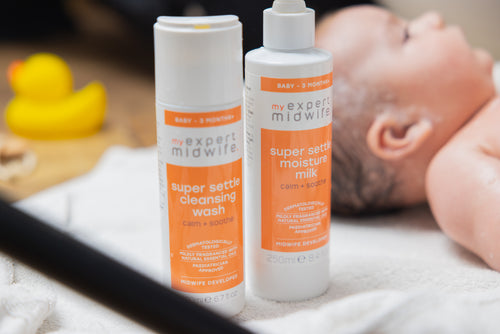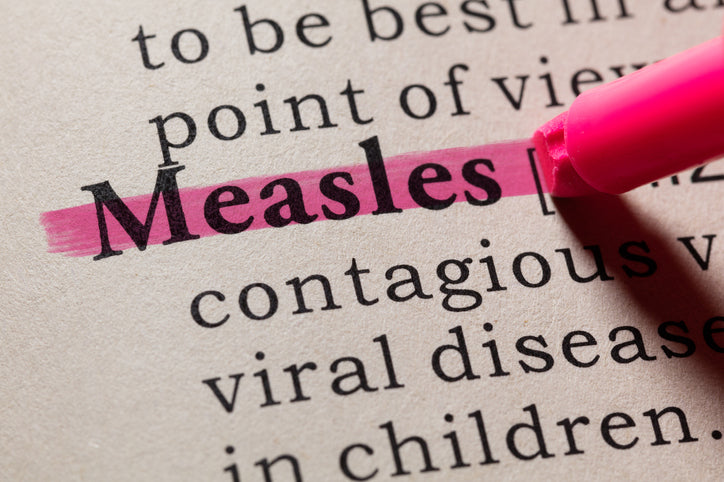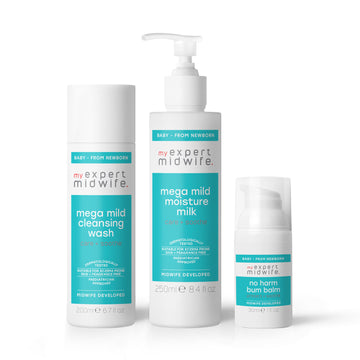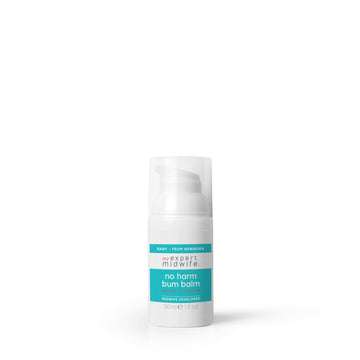If you have come across the recent news of a rise in measles cases among children under 10 in the UK, you will probably welcome some more information, practical advice and reassurance.
In this blog you will find:
- Important information about measles
- Ways to reduce the risk of infection
- How to recognise measles
- What to do if you think you or your child have measles
- Treating and relieving symptoms of measles
What you need to know about measles
- Measles is a highly infectious disease and it is mostly transmitted by droplet spread (sneezing & coughing) or by direct contact with ‘snotty’ tissues (or hands, or faces!) or sputum (coughed up mucus) from an infected person
- Measles is generally infectious from 4 days before the rash appears and for up to 4 full days after the onset of the rash
- Measles is an acute viral disease. As it is a virus, it cannot be treated with antibiotics
- Children under the age of 5 are at increased risk of developing complications such as middle-ear infections, pneumonia and diarrhoea
- Rare complications of measles include encephalitis (inflammation of the brain)
- 20% of children who become infected with measles need hospital admission
- In pregnancy, measles could cause premature labour, low birth weight, and miscarriage
What you can do to reduce the risk of infection:
If you or your children haven’t been vaccinated or have only had a single dose of the 2-dose MMR vaccine, make an appointment at your health centre to ascertain whether your or your child need the full course (2 injections) or just the second dose. Note that:
- The MMR (Measles, Mumps & Rubella) is a live vaccine and cannot be given in pregnancy.
- If you are trying to conceive, you are advised to avoid getting pregnant within a month of your second dose of MMR
- In children, the first dose of MMR is offered at 12 months and the second dose at 3 years and 4 months
- In adults and older children, the 2 doses can be give a month apart

Avoid contact with people who do not feel well. In its initial phase, measles can appear as a common cold, but this phase is highly infectious, so it is best to keep away from anyone with ‘cold-like’ symptoms if you are pregnant, your child is under 5, your or your child’s immune system is compromised, or you/your children haven’t been vaccinated
Likewise, keep yourself and your children away from people at high risk if you or they have cold symptoms
Eating a healthy and nutritious diet with plenty of fresh fruit and vegetables, taking a vitamin and mineral supplement, and getting regular physical activity and fresh air will also help to strengthen your immune system.
How to recognise measles:
- Measles often starts as a cold – with symptoms such as a ‘runny’ or blocked nose, fever, sneezing, and feeling unwell
- By day 2 or 3, the patient develops a cough and conjunctivitis - an inflammation of the thin membrane that protects the eyes and which shows as red/pink eyes that are usually ‘teary’ and swollen
- There is often extreme sensitivity to light, with rooms needing to be kept dark and screens avoided
- Fever gradually increases until day 4 or 5, when it reaches highs of up to 39-40°C. It then starts to gradually decrease back down to baseline
- A rash appears around 4 days after symptoms start. The rash generally starts in the face before spreading to the rest of the body

What to do if you think you or your child may have measles
- Measles is a notifiable disease, so if you are worried that you or your child may have measles, contact your GP for an urgent appointment or contact NHS 111 as soon as possible. If you or your child are stable, your doctor will assess your/their/their condition over the telephone and continue with a remote follow up.
- It is important not to attend your GP surgery, unless you have been asked to do so by your doctor. In which case, measures will be taken before your arrival to avoid contact with other people as much as possible.
Treating and relieving the symptoms of measles, after assessment from your doctor
- Ensure you or your child get as much rest as possible – this means almost absolute bed rest
- Increase fluid intake to maintain optimal hydration and to help the body heal - water, herbal teas and home-made juices are all good
- Only consider giving your child simple analgesia like paracetamol (or ibuprofen) if they are distressed or unwell with the fever. Routine use of paracetamol or ibuprofen is not recommended for children who have a fever but are otherwise comfortable
- If your child has a fever, do not undress them, over-wrap them or give them a tepid sponge bath. These interventions are not recommended. With close observation and reassurance, allow the fever to run its course (this is the body fighting the virus)
- Use cotton wool soaked in cooled boiled water to clean and soothe the eyes
- Keep the room dark and avoid screens (TV, phone, iPad, etc), as light can hurt the eyes. At times when the use of light is unavoidable, the patient would benefit from wearing sunglasses or an eye mask
- Avoid taking ibuprofen if you are pregnant, unless prescribed by your doctor
- If your or your child’s symptoms change and you are concerned, contact your doctor urgently or ring NHS 111.

With vaccination, a strong immune system and the appropriate care, most people recover from measles within a fortnight.






